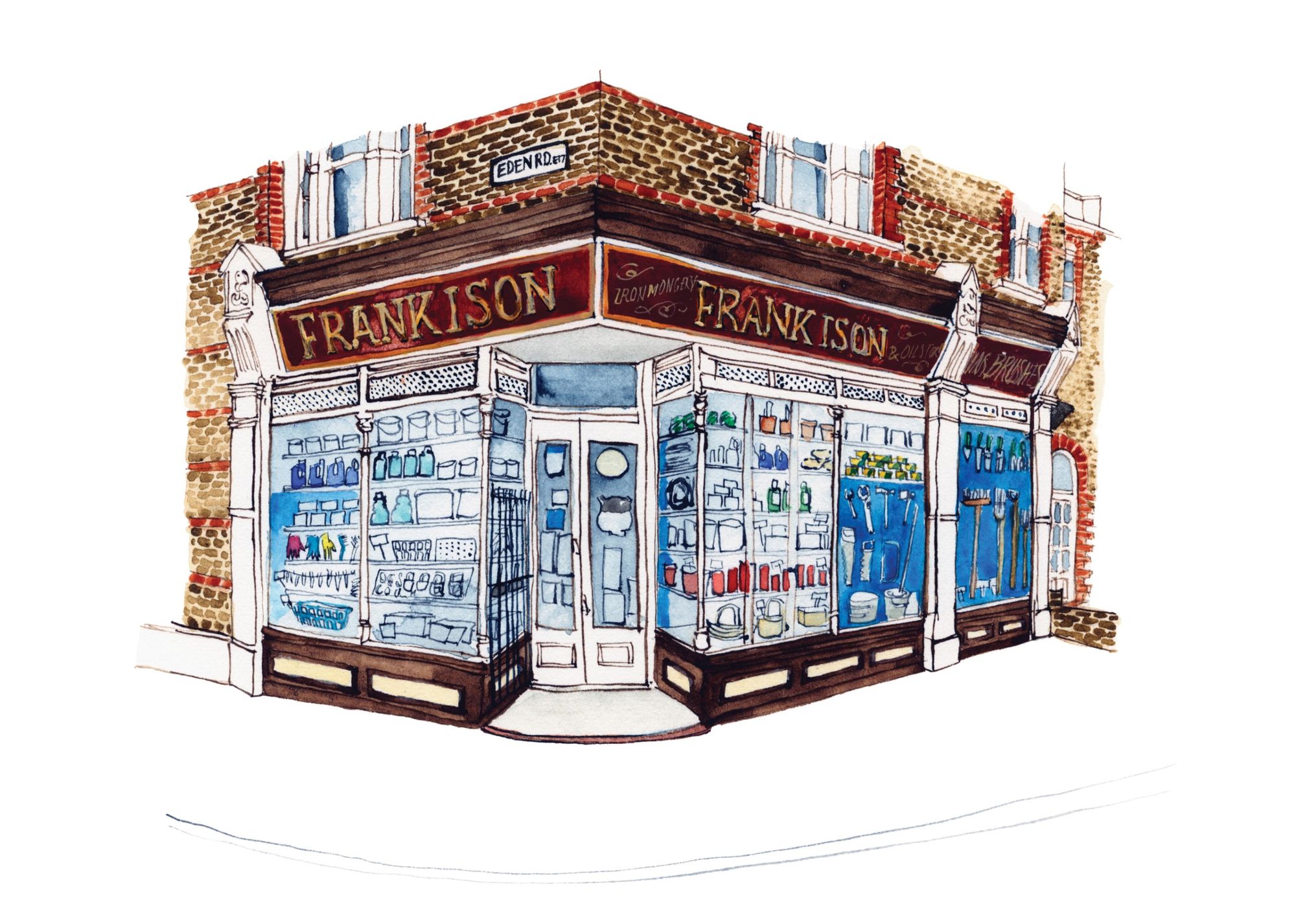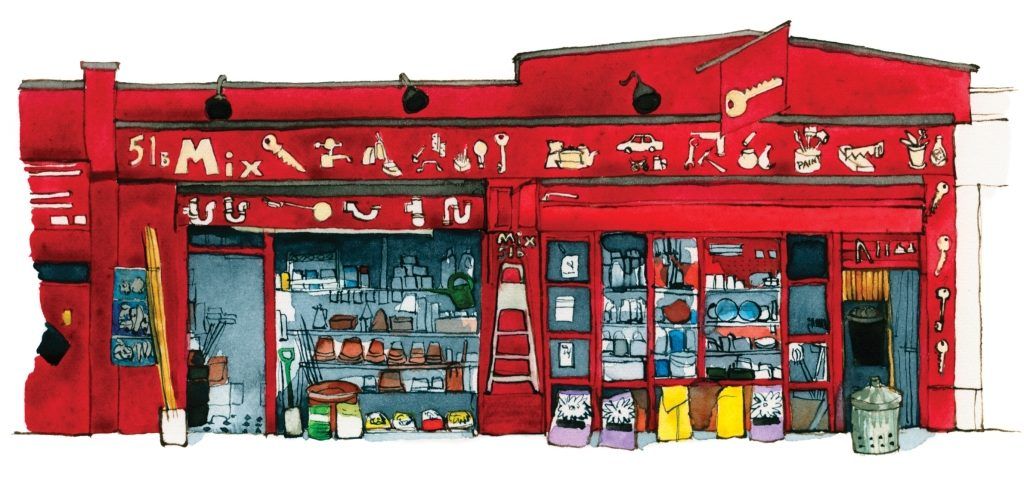Eleanor Crow’s Brushes with London’s Shopfronts
Eleanor Crow captures London's historic shopfronts in watercolour, and now they're published in a book.

One way of exploring London’s commercial history is through its signs, notably the huge range presented by its shopfronts. Some of these have remained in use for many years, many have faded into ghost signs, while others have been time-capsuled by the erection of new, and often garish, modern creations.
It is easy to take these shopfronts for granted, or to become blind to them hiding in plain sight. However, by looking up (from our phones!) and studying them, we can uncover a rich, and enduring, source of inspiration. As her exhibition of watercolours opens at Townhouse Gallery, and accompanying book is published, I caught up with Eleanor Crow who has dedicated herself to the study and painting of shopfronts across the capital, many of which hold fond memories for me.

Eleanor is an artist, book cover designer (currently at Faber) and educator, and has lived in London for 23 years. She was always attracted to shops and their signs, but it was ten years ago that she first started to draw them. She has now painted 150 in total since her first which was the (now closed) Tea Rooms on Museum Street. But what draws her to particular signs, given the overwhelming number on offer in the city?